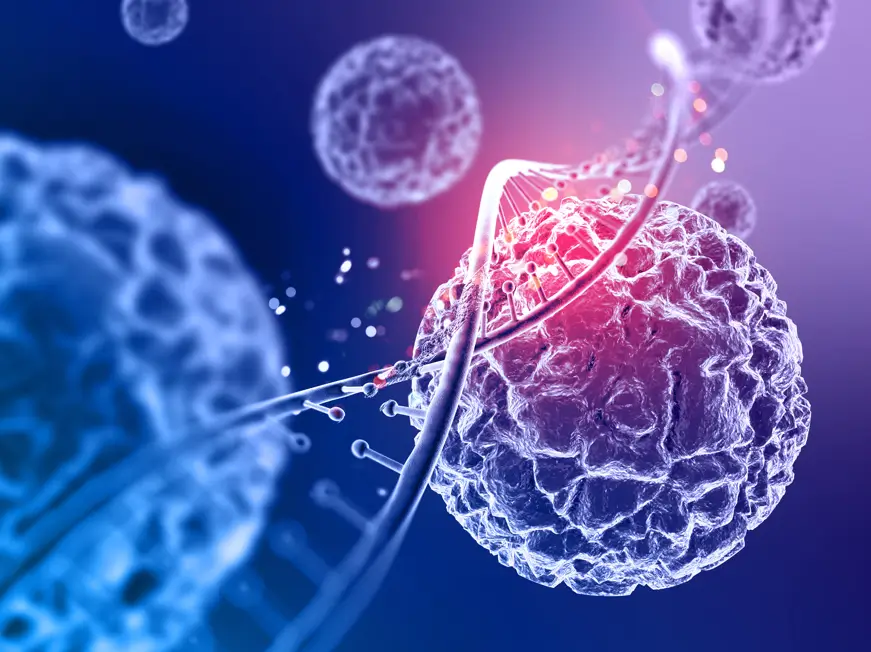Natural Killer (NK) cell therapy is gaining recognition as one of the most promising cancer treatments, thanks to its remarkable ability to directly attack and eliminate cancer cells. This innovative form of immunotherapy leverages the natural power of NK cells — a type of white blood cell in the body’s innate immune system — to target and destroy cancer cells or virus-infected cells. NK cells are called “natural killers” because they can recognize and eliminate abnormal cells, such as tumor cells or infected cells, without the need for prior exposure or sensitization. This unique capability makes NK cell therapy a groundbreaking approach in cancer treatment.
Here are some reasons why NK cell therapy stands out as an effective option:
1. Selective Targeting of Cancer Cells
NK cells have the ability to distinguish between healthy cells and cancerous or infected cells. Unlike conventional treatments such as chemotherapy or radiation, which affect both cancerous and healthy cells, NK cells specifically target and kill abnormal cells, reducing damage to healthy tissues. 
2. Natural Anti-Tumor Activity
NK cells are part of the body’s innate immune system and have a natural ability to seek and destroy tumor cells without prior sensitization. This means they can recognize and kill cancer cells quickly, even before the adaptive immune system is activated.
3. Broad-Spectrum Cancer Targeting
NK cells can attack a wide range of cancer types, including solid tumors and blood cancers (e.g., leukemia, lymphoma). They can recognize stressed cells, such as cancer cells, through various activating receptors, making them effective against many different malignancies.
4. Low Risk of Graft-Versus-Host Disease (GVHD)
In allogeneic NK cell therapy (using donor NK cells), the risk of GVHD—a serious complication where the immune cells attack the patient’s own tissues—is lower compared to other immune therapies like T-cell therapy. This makes NK cell therapy safer and more suitable for a wider range of patients, including those undergoing stem cell transplants.
5. Ability to Overcome Tumor Evasion
Many cancers develop mechanisms to evade detection by the immune system. NK cells can bypass these mechanisms by detecting stress signals on the surface of tumor cells that are often invisible to other immune cells like T-cells. This makes them particularly effective against tumors that have become resistant to other forms of immunotherapy.
6. Potential for Combination Therapies
NK cell therapy can be combined with other cancer treatments, such as chemotherapy, radiation, or immune checkpoint inhibitors, to enhance its effectiveness. By integrating NK cell therapy with existing treatments, patients may experience improved outcomes with fewer side effects.
7. Minimal Side Effects
NK cell therapy typically has fewer side effects compared to traditional cancer treatments. It does not rely on toxic chemicals or radiation, which can damage healthy cells and lead to severe side effects. The body’s immune system also tends to tolerate NK cell infusion well, making the treatment more manageable for patients.
8. Ongoing Advancements and Research
Research into enhancing the effectiveness of NK cell therapy is rapidly advancing. Scientists are exploring ways to engineer NK cells to improve their ability to target and destroy cancer cells, further increasing the potential of this therapy in the fight against cancer.
Summary:
NK cell therapy offers a targeted, natural, and highly effective approach to cancer treatment, with fewer side effects and broader applicability. It leverages the body’s innate immune system to fight cancer, making it a powerful and increasingly preferred option in modern oncology.
If you’d like more information or details on how NK cell therapy works in practice, feel free to reach out our CanceRegene Solutions team!
Clinical Studies:
- NK Cell Therapy: A Rising Star in Cancer Treatment
- Natural Killer Cell Therapy
- The natural killer cell immunotherapy platform: An overview of the landscape of clinical trials in liquid and solid tumors
